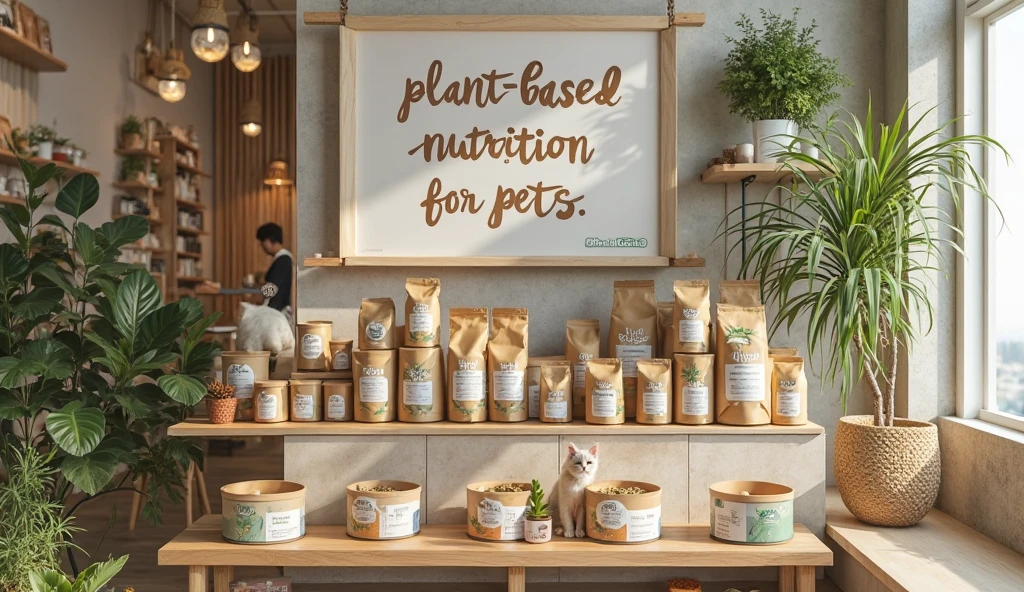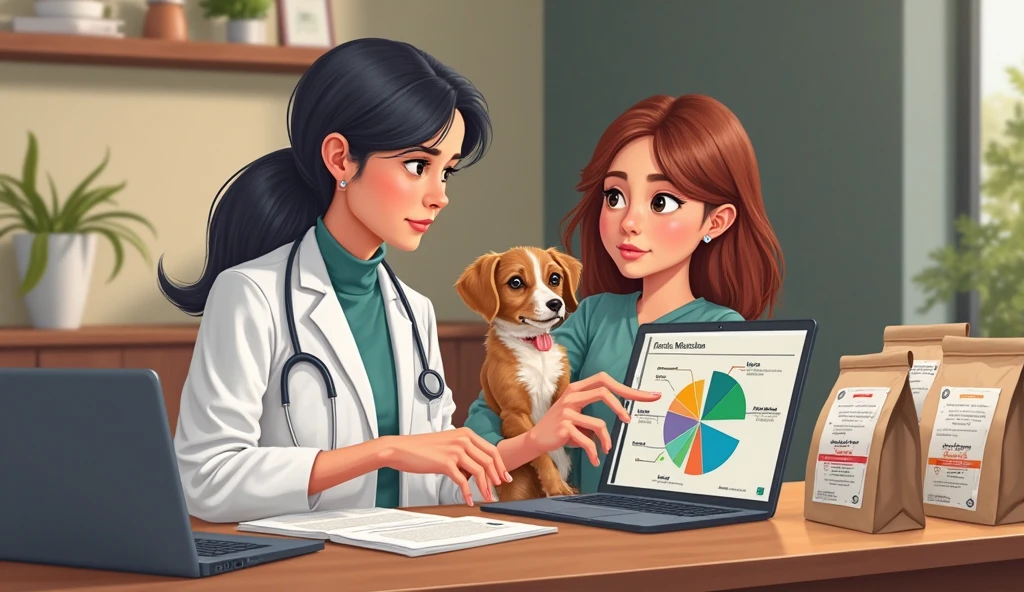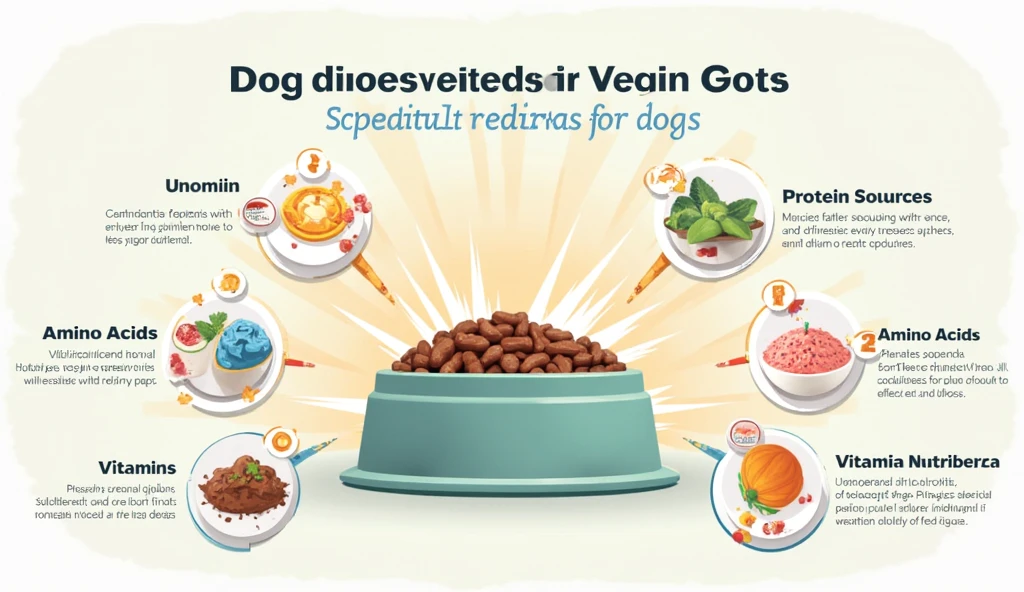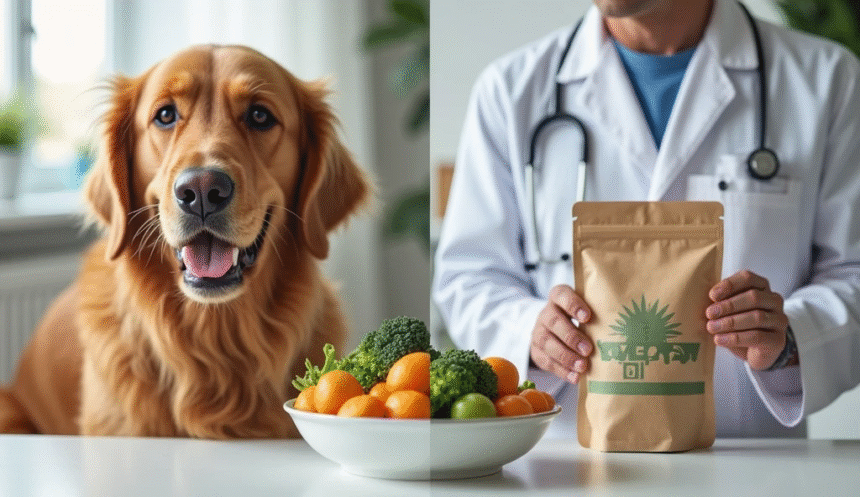As plant-based lifestyles go mainstream, many pet owners are asking a big question:
Should my dog or cat go vegan, too?
In 2025, the market for vegan pet food is booming. From climate-conscious millennials to animal-rights-driven Gen Zs, more people are opting for meat-free meals — for themselves and now, their pets.
But what do the experts say? Is vegan pet food just a trendy diet fad, or is it a potential health risk?
The Growth of the Vegan Pet Food Market
- The vegan pet food industry is projected to hit $19.6 billion globally by 2026
- Over 35% of dog owners under 40 say they would consider a plant-based diet for their pets
- Eco-conscious brands like V-Dog, Wild Earth, and The Pack are expanding fast

What Vets Say in 2025
For Dogs: It Can Work — With Supervision
According to veterinarians and pet nutritionists:
- Dogs are omnivores.
- They can survive and even thrive on well-formulated vegan diets.
- Key nutrients (like taurine, L-carnitine, and B12) must be added through supplements.
“Dogs can do okay on a balanced plant-based diet, but DIY veganism is risky,” says Dr. Amira Patel, a vet based in Toronto.
For Cats: Riskier Territory
- Cats are obligate carnivores.
- They require nutrients only found in animal products — especially taurine, arachidonic acid, and vitamin A.
- A vegan diet without these can lead to blindness, heart failure, or death.
“Unless you’re working closely with a veterinary nutritionist, I don’t recommend it,” warns Dr. Eric Tan, a feline specialist in San Francisco.

Nutritional Considerations
A vegan pet food must include:
- Amino acids (Taurine, Methionine, Arginine)
- Essential fatty acids (Omega-3, Arachidonic Acid)
- Synthetic or fermented vitamins (B12, D3)
Many pet owners assume rice and peas are enough. They’re not.
“The concern isn’t the plant base — it’s nutritional completeness,” says Dr. Natalie Yong, a veterinary nutritionist.

Environmental & Ethical Arguments
Proponents argue vegan pet food:
- Reduces the carbon pawprint
- Avoids factory farming
- Uses sustainable plant proteins
Some owners say: “Why feed my dog beef if I won’t eat it myself?”
But critics caution against prioritizing ethics over animal biology.

What to Watch for in 2025
- Pet food tech startups using lab-grown meat and algae-based proteins
- New veterinary research on long-term vegan diets for pets
- Hybrid diets — part plant-based, part insect or cultured meat
- DNA-based nutrition plans tailored to each animal
Vet-Approved Takeaways
| Pet Type | Vegan Diet Verdict | Notes |
|---|---|---|
| Dog | ✔️ Possible with supervision | Use AAFCO-compliant brands & vet guidance |
| Cat | ❌ Generally unsafe | Nutritional risks too high |
| Rabbit | ✔️ Naturally vegan! | Fiber-rich diets needed |
Final Thoughts: Trend and Threat?
Vegan pet food is not a gimmick, but it’s not a blanket solution either.
In 2025, the idea is here to stay — but vets agree: nutritional balance beats ideology. Before switching your pet, always consult a professional.
Because in the end, it’s not about your values — it’s about their health.








